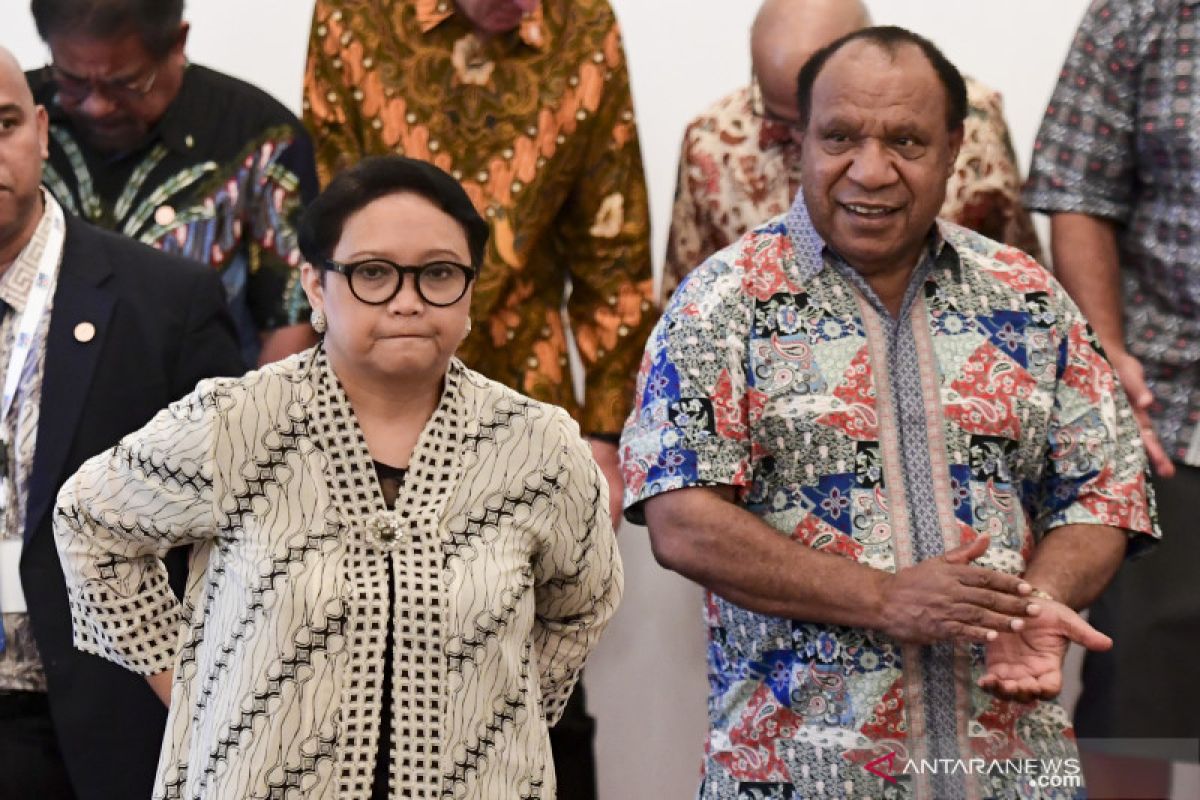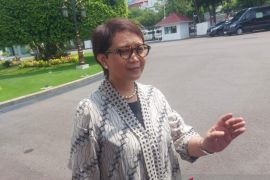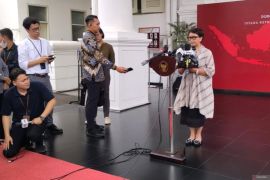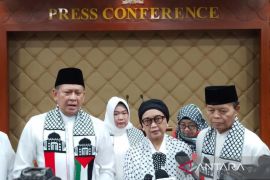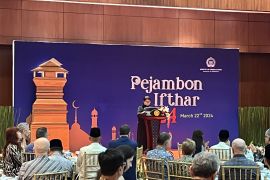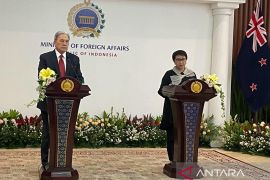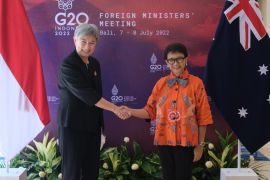The ISPF, themed "Connecting Peoples for Sustainable Growth", was aimed at strengthening economic cooperation in the region and saw the participation of representatives from the private sector from Indonesia and the South Pacific countries.
The meeting was attended by officials from the South Pacific countries, including Australia, New Zealand, Micronesia, Fiji, New Caledonia, Marshall Islands, Kiribati, Nauru, Palau, Papua New Guinea, Tonga and Tuvalu.
South Pacific is not only geographically close to Indonesia, but Indonesia also comprises at least 11 million people of the Melanesian race spread across the provinces of Papua, West Papua, Maluku, North Maluku and East Nusa Tenggara (NTT), he said.
“Indonesians and the people of the South Pacific countries belong to one family. We call the Pacific Ocean our home. And our cooperation in developing the South Pacific will define the future that we want to create together for our next generation,” Indonesian Foreign Affairs Minister Retno LP Marsudi said in her address entitled “New era of Indonesia-South Pacific engagement”. Indonesia and the South Pacific countries face common challenges that directly impact the communities in the region and range from the rising sea levels to the pursuit of welfare through economic development.
"This Indonesia-South Pacific Forum is well-timed to welcome a new era of partnership," Marsudi said during the Forum held for the first time based on the initiative of Indonesia.
Entrepreneurship training, establishing new diplomatic relations and easing the movement of goods are a few examples of this new era, she noted.
During the meeting, the Indonesian government and representatives of the South Pacific countries held a meeting to discuss the maritime economy and connectivity. The ISPF also saw business engagement, business exhibitions, consultations on the Preferential Trade Agreement between Indonesia and several countries in the South Pacific, and the initiation of a technical cooperation.
The Business Engagement program brought together entrepreneurs from countries on the Pacific Island to discuss opportunities and challenges in building sustainable business relationships.
The exhibition saw the participation of retail, financing, construction, pharmaceutical, water treatment, and biodegradable plastic businesses, and micro, small and medium enterprises (MSMEs) from NTT, Maluku, and West Papua.
Three cooperation agreements were also signed on the sidelines of the Forum, notably the Joint Ministerial Statement on the launch of the Preferential Trade Agreement between Indonesia and Papua New Guinea, the Joint Ministerial Statement on the Launch of the Negotiations for Indonesia - Fiji Preferential Trade Agreement, and the Memorandum of Understanding between Exim Bank and Audie Building Industry concerning infrastructure development in the South Pacific nations.
Indonesian companies expressed their interest to work together and to invest in the Pacific countries, which hold economic and business potential.
Although still non-traditional partners, some Indonesian companies have already entered the South Pacific region. Two of them are Audie Pacific Engineering with Yadua bay Resort and Treetop Villa Resort in Fiji, as well as Bariki Football Stadium in Kiribati.
There is also a potential cooperation that allows the Indonesian pharmaceutical company, Dexa Medica, to export pharmaceutical products to South Pacific countries.
PT. Dirgantara Indonesia, an Indonesian aircraft manufacturing company, has already witnessed the promising market opportunities available in the South Pacific region.
Meanwhile, the two economies have tremendous untapped potential on the economic front. Trade relations, however, remain relatively small at US$450 million and there are factors challenging the increasing investment cooperation.
"However, as a family, we must unlock this potential. Indonesia and the South Pacific must redouble our efforts to overcome hurdles, most notably the distance," Marsudi said.
At the business forum, Indonesian companies were invited to present their profiles, and some companies expressed their interest to invest in and to cooperate with the South Pacific countries.
A discussion conducted during the ISPF business forum revealed the challenges that need to be addressed by Indonesia and the South Pacific countries to strengthen business relations, including low connectivity, high delivery fees, high import charges, and complicated procedures to get visas for foreign employees.
However, despite the challenges, the Indonesian government believes that the potential economic cooperation with the South Pacific countries is worth exploring.
"The ISPF will explore any potential options to strengthen cooperation with countries and territories in the region, while building a common understanding as an archipelagic nation with similar characteristics and challenges," Desra Percaya, the director general of Asia-Pacific and African Affairs of the ministry, noted during a press conference recently.
Meanwhile, Papua New Guinea, while participating in the ISPF, expressed its keenness to take a cue from Indonesiaon ways to boost economic development and enhance partnerships in the Pacific region.
PNG Minister of Foreign Affairs Rimbink Pato opined that his country would be able to derive immense economic benefits by learning from Indonesia about the principles of peace, friendship, and partnership among countries in the Pacific region.
Pato said several international experts had estimated that Indonesia would become the fourth-largest economy after China, India, and the United States, with a GDP of US$10.1 billion.
The minister lauded Indonesia's efforts to become more involved in the cooperation with South Pacific countries, which hold huge potential in the areas of economy, trade, and investment.
All in all, the ISPF provided an avenue for dialogue for Indonesia and the South Pacific, which benefits everyone — the governments and the people. This robust avenue is the new dawn, which opens a new era of Indonesia-South Pacific engagement, an era that has been long overdue, according to Marsudi.
Editor: Rahmad Nasution
Copyright © ANTARA 2019
